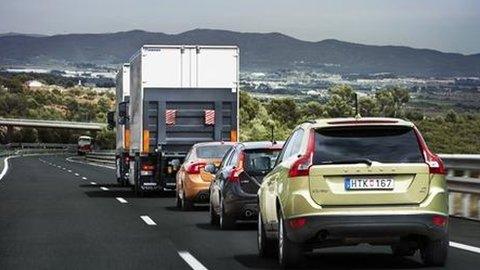Volvo plans tests of 100 driverless cars in China
- Published
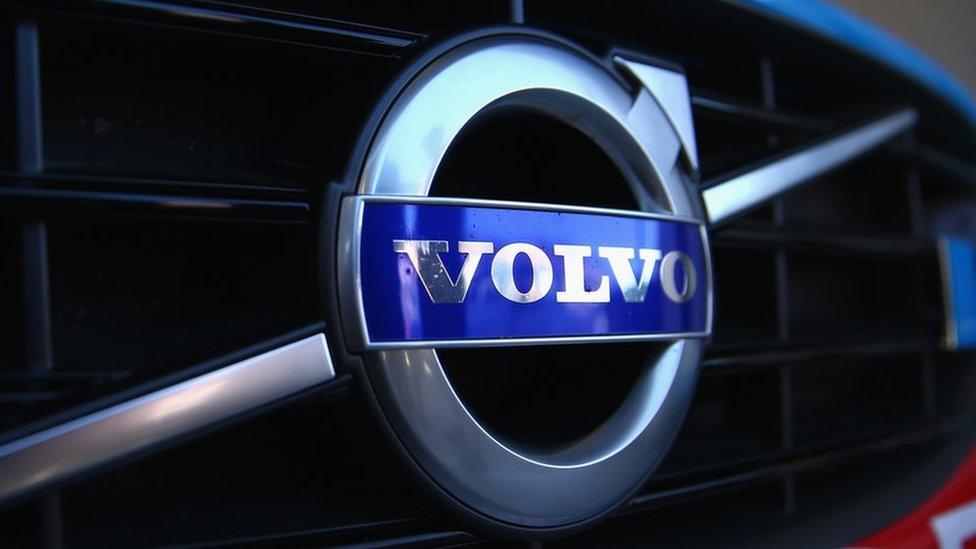
Volvo plans to start self-driving vehicle experiments in China - with u to 100 cars
Swedish carmaker Volvo has said it plans to launch a self-driving experiment in China involving up to 100 cars.
Local drivers will test cars on public roads in "everyday conditions", according to a company press release.
The move was announced at an event in Beijing on 7 April, though details of a start date were not provided.
One analyst said he thought China was at the forefront of the development of autonomous cars.
Volvo is owned by a Chinese firm, Zhejiang Geely Holding Group Co.
According to a report from the Reuters news agency, Volvo is now determining in which city to conduct the trials.
"Autonomous driving can make a significant contribution to road safety," said Hakan Samuelsson, president and chief executive of Volvo.
"The sooner [autonomous] cars are on the roads, the sooner lives will start being saved."
'Significant' move
"I think people probably don't realise quite how much China's putting into advanced technology in cars," Prof David Bailey of Aston Business School told the BBC.
"Google has had a far smaller number of cars in tests as far as I can work out, so it is significant."
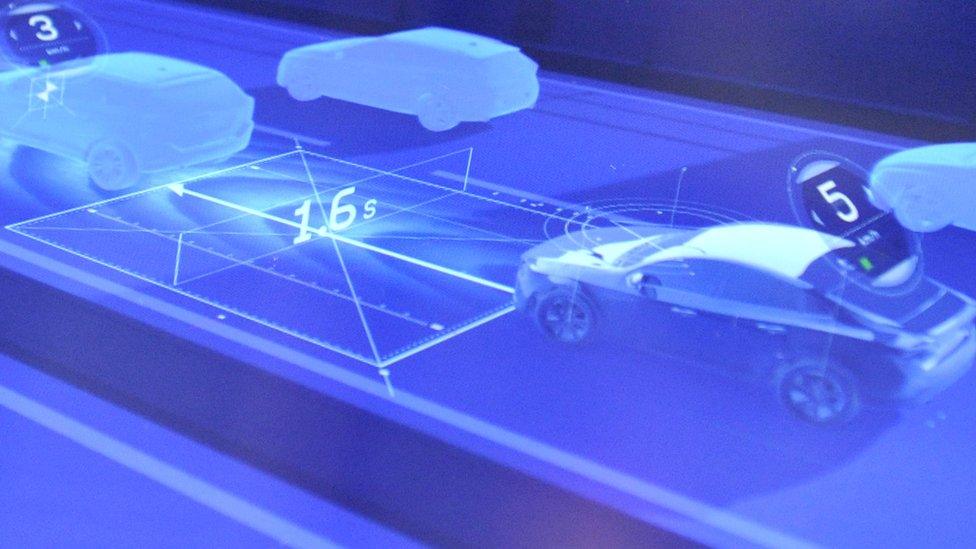
Volvo has invested in a range of advanced car technology, including 'pilot assist' features
Prof Bailey added that China was both the biggest producer of, and market for, cars in the world.
The country is certainly no stranger to self-driving car tests - in December a driverless car completed a test on public roads in Beijing.
It had been developed by Chinese tech giant Baidu.
Google expands tests
Silicon Valley tech giant Google simultaneously announced that it would expand testing of its self-driving vehicles to Phoenix, Arizona.
This will make it the fourth city to host trials of Google's autonomous cars.
"The Phoenix area has distinct desert conditions, which will help us better understand how our sensors and cars handle extreme temperatures and dust in the air," Jennifer Haroon, head of business operations for the Google Self-Driving Car project, told Reuters.
Google recently suffered a hiccup with one of its self-driving cars in California, after it crashed into a bus.
No-one was injured during the incident on 14 February.
- Published10 December 2015
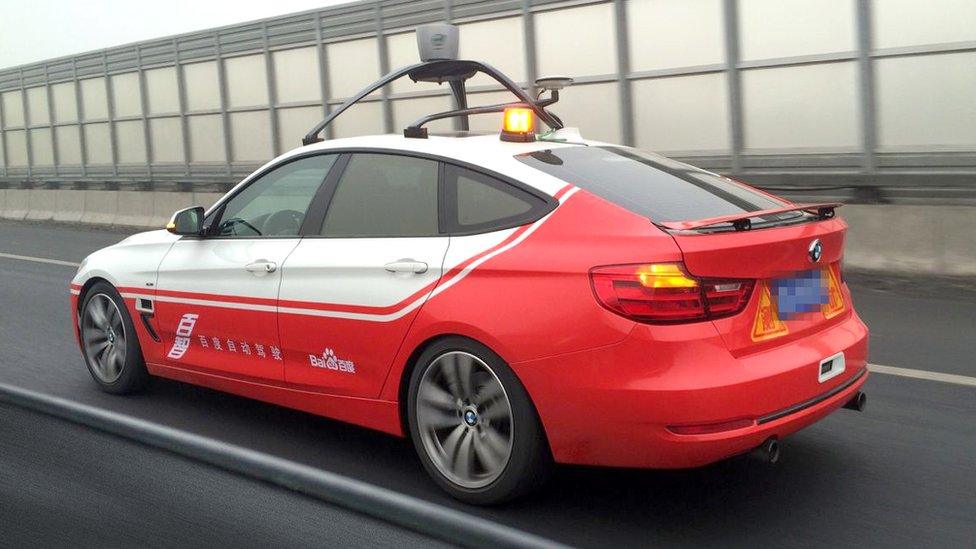
- Published29 February 2016
- Published6 January 2016
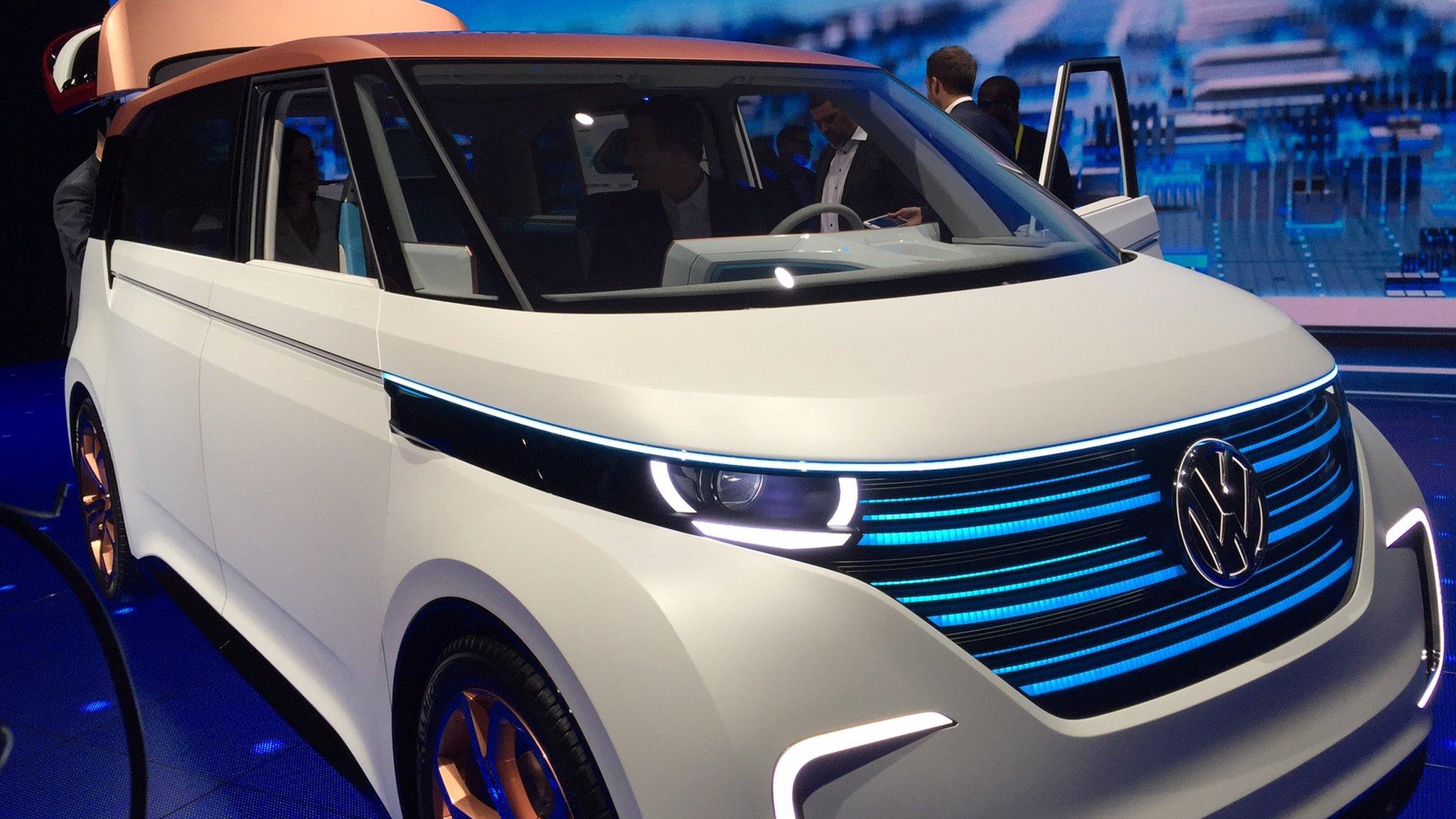
- Published5 October 2015
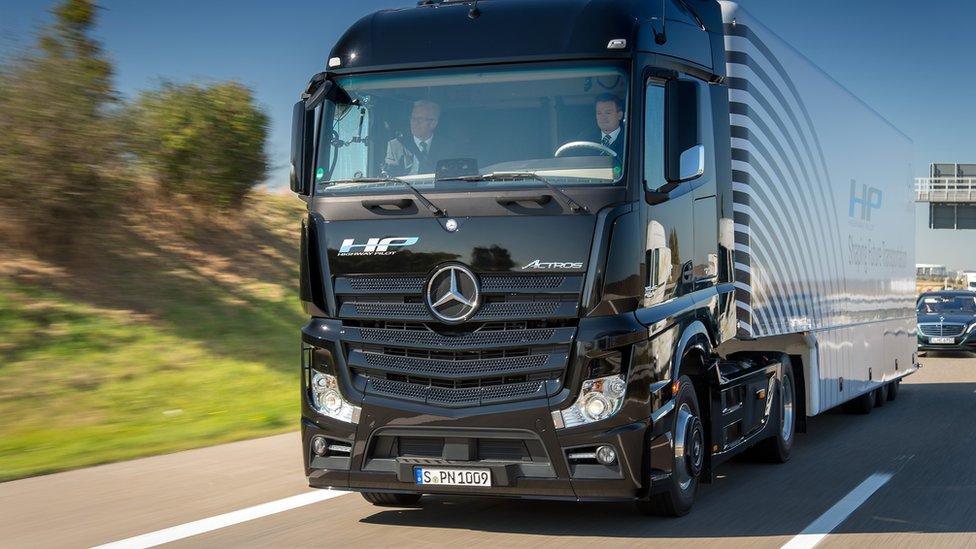
- Published29 May 2012
